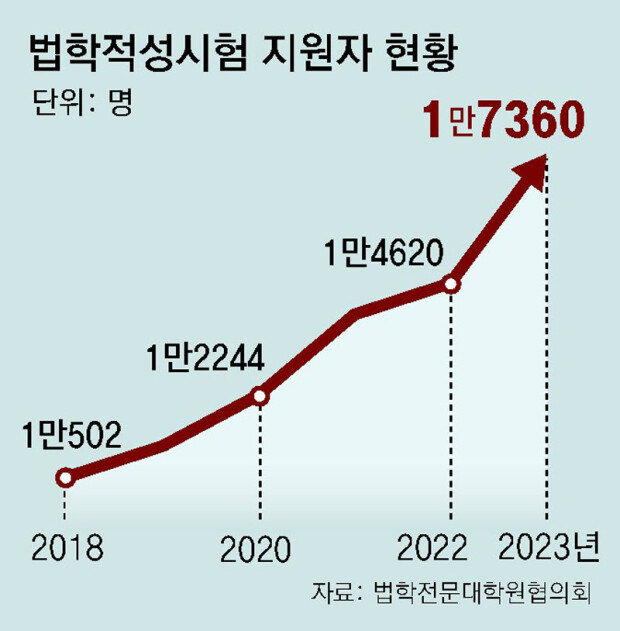The number of LEET takers hit a record high
The number of LEET takers hit a record high
Posted July. 05, 2023 07:53,
Updated July. 05, 2023 07:53

“The difference only lies in the timing of test preparation. Whether one is a college student or a graduate, they eventually undertake the exam,” a person affiliated with a law school in Seoul remarked.
Just as high-achieving students in natural sciences and engineering majors are often drawn to medical schools, those with business or liberal arts backgrounds are increasingly inclined toward pursuing careers in law. They opt to take the Legal Education Eligibility Test (LEET) with the aspiration of becoming a justice, prosecutor, or attorney.
The Korean Association of Law Schools has announced that the number of participants in the upcoming LEET, scheduled for July 23, is projected to reach a record high of 17,360. This figure marks the highest number of test takers since the LEET’s inception in 2008. “Given that the percentage of individuals taking the LEET has consistently remained slightly below or above 90 percent, it is certain that this year’s test takers will surpass the previous year’s figure of 13,193,” an industry insider commented.
Since 2015, LEET takers have consistently increased for nine consecutive years. In 2019, the test takers surpassed the threshold of 10,000 for the first time, reaching 10,291. Subsequently, the figures rose to 11,150 in 2020, 12,622 in 2021, and 13,193 in 2022.
“The civil servant profession, once considered a dream job for many young job seekers due to its stability, is no longer as attractive to the MZ generation. Elite students, who prioritize job security and higher salaries, are now more inclined towards pursuing professions in medicine and law to become professionals,” Professor Choi Hang-seob, a social studies professor at Kookmin University, observed.
suwoong2@donga.com · cms@donga.com
Headline News
- Joint investigation headquarters asks Yoon to appear at the investigation office
- KDIC colonel: Cable ties and hoods to control NEC staff were prepared
- Results of real estate development diverged by accessibility to Gangnam
- New budget proposal reflecting Trump’s demand rejected
- Son Heung-min scores winning corner kick







